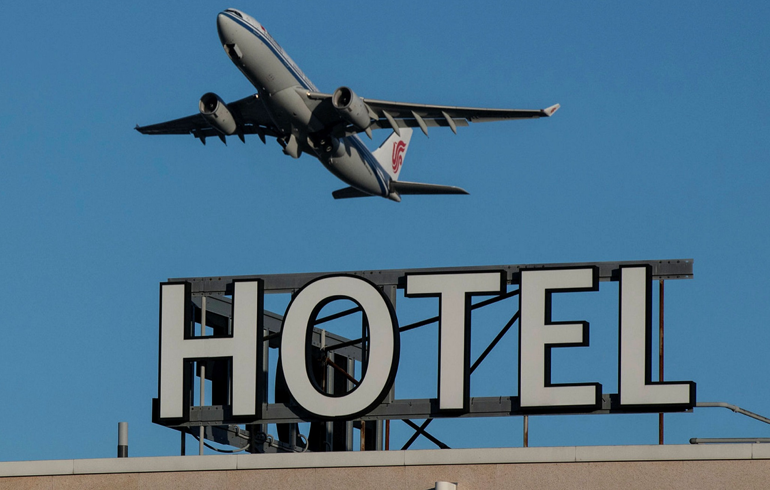British residents arriving in England from Covid hotspots will have to quarantine in hotels, Home Secretary Priti Patel is expected to announce.
The measures will apply to people coming from most of South America, southern Africa and Portugal, amid concern over new variants of the virus.
Most overseas visitors from those countries are already barred from entering the UK.
But Labour said hotel quarantine should be mandatory for all arrivals.
British nationals and those with residency rights who arrive from high-risk countries will be required to quarantine in a hotel at their own expense for up to 10 days, in a bid to improve compliance with self-isolation rules.
Senior ministers met on Tuesday night to approve the plan, following days of disagreement over the details.
They also agreed that if other areas were designated as high risk in the future, then the requirement for hotel quarantine would be extended.
Transport Secretary Grant Shapps had argued for a targeted approach to quarantine, while the home secretary had favoured its more widespread use, according to BBC political correspondent Iain Watson.
Ms Patel will set out further details in the House of Commons, including the timescale for the policy and who will be exempt.
She told MPs on Tuesday the government would not hesitate to take further action to protect the UK from new variants, adding: “Measures are always under review.”
Labour leader Sir Keir Starmer has called for tougher measures to combat the spread of new variants from abroad.
He told reporters on Tuesday: “It’s very clear that we need to have quarantine comprehensively in hotels for everybody coming into the country, we need much stronger defences at our borders.”
What’s life like in a quarantine hotel?

After finally securing her family’s place in Australia’s quarantine system, Keri McMenamin prepared for the worst – and ordered a vacuum cleaner.
The 38-year-old was returning to the country with her husband and two children after securing a job offer – leaving the UK in the middle of the coronavirus pandemic last year.
“It is literally luck of the draw,” she says of where her family would spend 14 days together once they arrived. “You didn’t know what to expect.” Having done some research, Keri discovered Facebook groups busy with people relaying their experiences of quarantine.
“A lot of people were saying, ‘Look, just expect the worst and then whatever you get is a bonus.'”
In the end, the family was given an interconnecting room. But the windows were sealed and their time outside limited to 20-minute stints every two to three days.
However, the Airport Operators Association and Airlines UK said the country already had “some of the highest levels of restrictions in the world” and introducing stricter rules would be “catastrophic”.
At the moment, incoming travellers have to show proof of a negative Covid-19 test on departure, taken in the previous 72 hours. Then they still have to quarantine for up to 10 days, although this can be done at home.
Those who do not comply will face a fine of £500, with Border Force officials carrying out spot checks.
In England, the self-isolation period can be cut short with a second negative test after five days.
Quarantine rules are set separately in Scotland, Wales and Northern Ireland but have tended to differ only slightly
Hotel quarantine is already in use in countries including New Zealand and Australia.
Source: BBC

















































